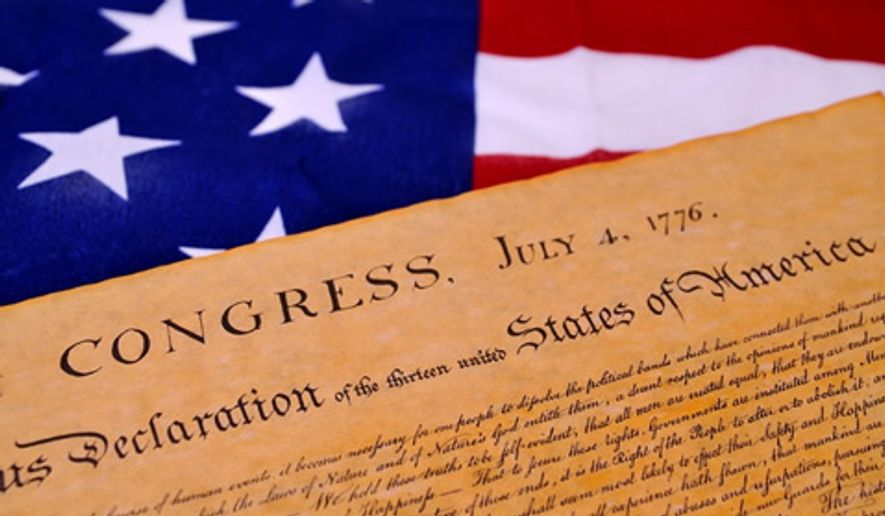On Independence Day, we remember the remarkable event, 240 years ago this week, that marked a rare turning point in human history — the founding of a nation on the principle of human freedom.
In July of 1776, at the Second Continental Congress in Philadelphia, 56 men pledged “their lives, their fortunes, and their sacred honor” to that ideal.
“We hold these truths to be self-evident,” they wrote: “that all men are created equal, that they are endowed by their Creator with certain unalienable rights, that among these are life, liberty, and the pursuit of happiness.”
For more than two centuries, our nation has continued to be defined by these fundamental values and principles. They are the essence of American exceptionalism.
In signing the Declaration of Independence, the delegates to the Continental Congress showed extraordinary courage and incredible vision. Their ideas went on to form the model for free peoples and representative governments around the world.
As we remember the Founders’ words this week, however, let us also remember that their vision required the hard work and sacrifice of an Army to defend it and make it a reality.
In fact, it was not in Philadelphia, but 100 miles to the northeast, where the real action of the American Revolution played out in July of 1776. There in New York, under the command of General George Washington, the Continental Army helped determine whether the words of the Declaration of Independence would have real meaning.
From their perch across the harbor in Manhattan, Washington and his small force could see the menacing sight of 30,000 British and Hessian troops disembarking onto Staten Island. The goal of these imperial forces was to crush the Revolution before it really began.
Washington and his men had no illusions about what was at stake. On July 2, 1776, General Washington wrote: “The time is now near at hand which must probably determine, whether Americans are to be, Freemen, or Slaves …The fate of unborn Millions will now depend, under God, on the Courage and Conduct of this army — Our cruel and unrelenting Enemy leaves us no choice but a brave resistance, or the most abject submission; this is all we can expect — We have therefore to resolve to conquer or die.”
It was to inspire his troops with this sense of urgency that Washington ordered the Declaration read to his troops a week later, on July 9, 1776. On the horizon, the troops would have seen the masts of British ships that had come to end the cause for which they fought. In response, after the public reading of the Declaration, Continental troops joined civilians rushing to Bowling Green to tear down the statue of King George. Later, the lead was melted down and turned into bullets.
That summer in New York, Washington’s Army went on to suffer a major defeat and managed to avoid destruction by the narrowest escape. But miraculously, the Army survived — and with it, the cause of the Revolution.
As we illustrate in our new documentary film, “The First American,” Washington understood better than anyone that armies required causes, ideals, and principles to inspire them—but even more importantly, that ideals and principles required armies to defend them.
More than two centuries later, Washington’s insight remains as true as ever: We still need our principles — and our principles still need defending.
This week, we hope every American will take a few minutes to remember the sacrifice of those who have fought for the ideals of the Declaration of Independence — from George Washington and his army, to the men and women in uniform who defend our freedom today.




Please read our comment policy before commenting.